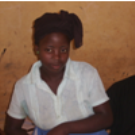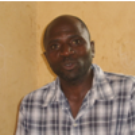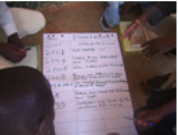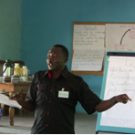Kwall, Nigeria
Talitha Tukura (Nigeria), Orleans Mfune (Zambia) and Conrad Otterness (US) spent eight months in 2011 working with 200 families in Kwall, Nigeria who are suffering from chronic food shortages caused by a lack of access to water and climate variability. These challenges exacerbate the already complex problem of poverty due to a lack of agricultural income. Combine these challenges lead to chronically malnourished and frequently ill children– and an inability to purchase food and pay for children’s education and health.
| Woman Voting During Needs Assessment Process |
|
 |
Team Nigeria developed a project that includes: |
Some of the background challenges that this community faces include bad governance, low civic participation, low literacy rates, and bad roads which restrict market access. Chronically malnourished children frequently suffer from stunting — poor mental and physical development affecting their ability to participate in education.
| Solution-oriented programmes |
|
 |
Their plan includes the development of irrigation infrastructure for their farmers, and farmer workshops on water conservation and management techniques. |
B. Vulnerability Matrix: What is a prioritization of the community’s greatest hazards they face?
-Change in the timing and length of the growing (rainy) season; starting later and ending earlier
-Drought; the dry spells are becoming much longer
-Unpredictable rainfall during the rainy season
-Crisis and disease
-Bush burning
-Erosion- the heavy rainfall leads to erosions and with trees being cut for firewood there are no barriers.
| Vulnerability Matrix | |
 |
What parts of their lives (livelihood resources) are the most vulnerable? |
| Coping Mechanisms | |
 |
It’s very complicated for them because they do not have extension workers that can advise them accordingly. Rather they learn through trial and error. Many of them use faster growing crop varieties, stress tolerant crops or have simply stopped farming certain crops. In addition, they have important social networks (e.g. extended family networks and associations) that allow them to cope with changes. Poverty is a huge issue and they cannot afford to pay for the construction of boreholes. In this vein, they are dependent on hand dug open wells which increases their vulnerability to waterborne diseases. |
Download their report and needs assessment:
Needs assessment workshop
Initial project outline
Team building workshop
Would you like to learn how to develop Community Based Adaptation Projects?
Please write us with your stories, thoughts and comments through Online.Learning@csd-i.org